NoCamels first launched in 2011 to cover breakthrough innovation from Israel for a global audience. Over the past nine years, we’ve published close to 10,000 articles on Israeli startups, scientific discoveries and medical research, amazing social initiatives, environmental projects, and innovative art and design.
As this year – and this decade – winds down, we wanted to share a list of the stories that resonated the most with our readers since NoCamels was founded. We’ve followed up on a number of them, with more to come.
SEE ALSO: 2010-2019: Highlights From A Decade Of World-Changing Israeli Innovations
Here are the best-performing and most widely read articles on our site:
Study Reveals Oxygen-Rich Air Can Reverse Severe Brain Damage
This 2013 article about an Israeli study showing that some brain damage can be reserved with oxygen therapy is one of NoCamels’ most searched articles. And it still generates significant traffic today.
The study was led by Dr. Shai Efrati of Tel Aviv University’s Sackler Faculty of Medicine and was shown to restore a significant amount of neurological function in brain tissue otherwise thought to be chronically damaged – even years after the initial injury. Efrati’s theory was that high levels of oxygen might bring damaged neurons back to life.
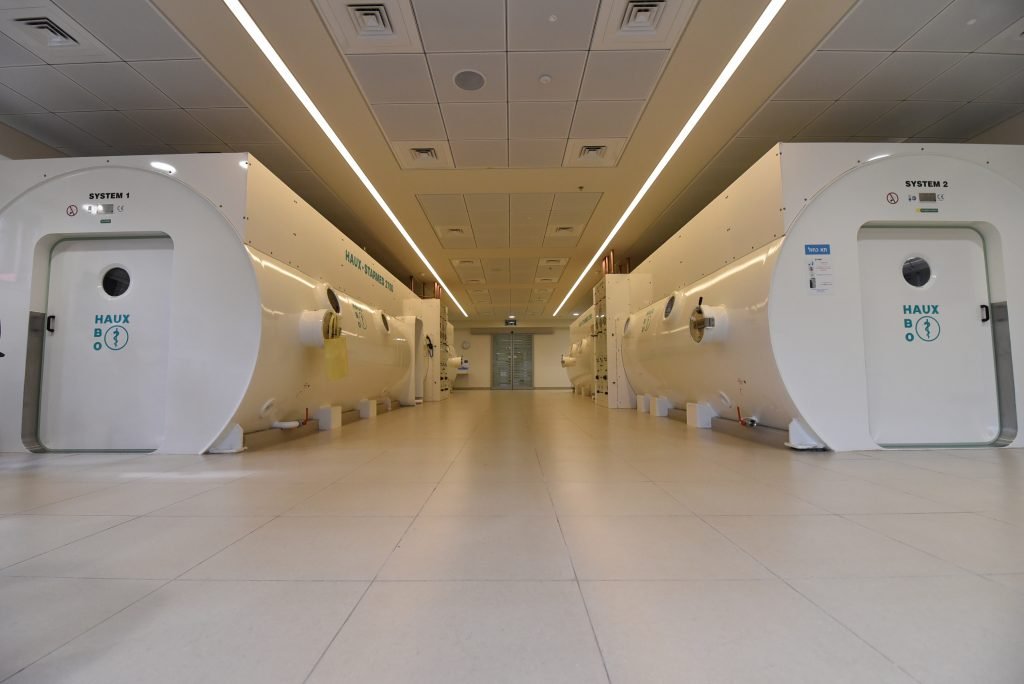
In the study, post-stroke patients were treated with hyperbaric oxygen therapy (HBOT) — sessions in high-pressure chambers that contain oxygen-rich air — which increases oxygen levels in the body tenfold. After two months of treatment, the patients showed a significant increase in neural activity.
UPDATE: NoCamels caught up with Dr. Efrati this month to discuss his work six years later. Today, he’s the director of the Sagol Center for Hyperbaric Medicine and Research at the Yitzhak Shamir Medical Center (formerly Assaf Harofeh), one of the largest hyperbaric centers in the world.
Dr. Efrati has since been part of a number of studies, including one published in 2018 that looks at the effects of HBOT on the cognitive functions in post-traumatic brain injury patients. Here too, the study showed that HBOT was associated with significant cognitive improvements and increased activity in the relevant brain areas.
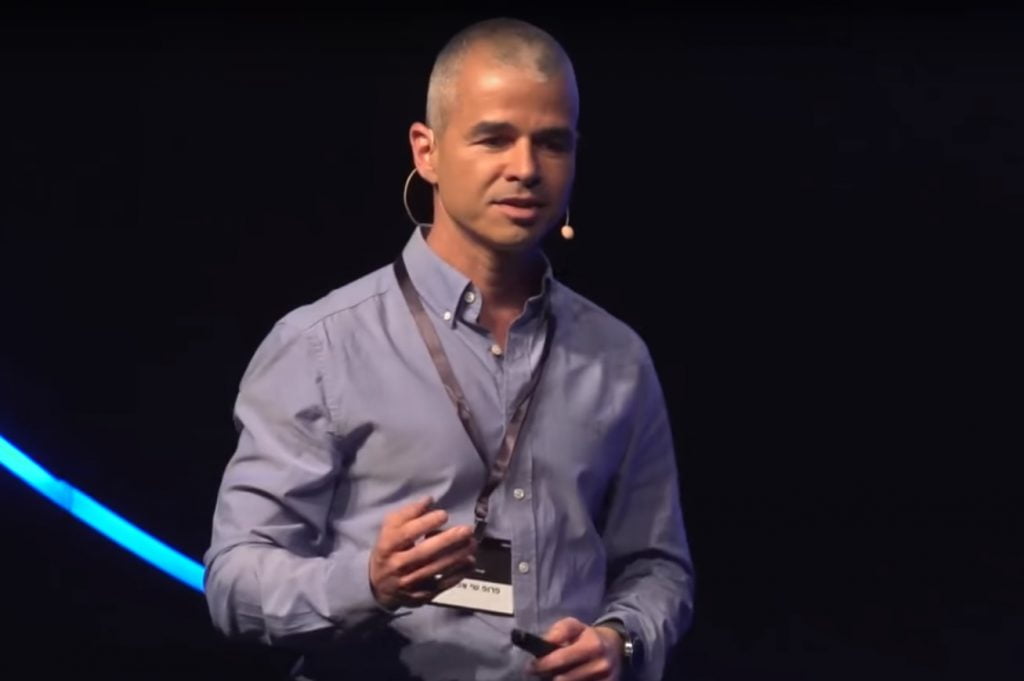
If the previous study showed that some patients regained certain abilities to walk, speak, move, the latest research showed significant measurable improvements in memory, attention, and executive function.
“It depends on where the injury is in the brain and what functions it affects,” he says, as well as how extensive the injury is. “If the injured area is dead, if there’s dead tissue there, HBOT cannot help; but if the tissue is not fully dead then the area can be rejuvenated with the treatment,” he explains.
Building on the concept of rejuvenation and regeneration, the treatment can also be useful for age-related mild cognitive impairment (MCI), he tells NoCamels, or “age reversal” – on which Dr. Efrati has spoken publicly.
But not for Alzheimer’s. “In humans, if there’s Alzheimer’s it’s already too late, the brain has atrophied. We work with people before that happens, when they still have significant brain activity,” he explains.
Dr. Efrati tells NoCamels that HBOT treatments are still considered novel and that more time and studies are required, but the Sagol Center currently treats some 250 patients daily.
The center also hosts researchers and physicians from across the world who come to Israel to learn about the treatment. “We’ve accumulated a lot of know-how on how to perform the treatment, on which patients, which protocols to follow and so on. So they come here and learn about what we are doing,” Dr. Efrati tells NoCamels.
There is no patent for the treatment, he explains, “but centers across the world want to be affiliated with us.”
In May 2020, The Villages Health system in Florida will become the first US system to be affiliated with the Sagol Center and to offer the treatment to those aged 55 and over, says Dr. Efrati. The idea is to have additional affiliates across the world every few months.
NoCamels will publish a separate article on Dr. Efrati’s work in the coming weeks.
Israeli Company That Turns Tumors Into Ice Balls Now Sets Its Sight On Lung Cancer
Also in 2013, NoCamels published a piece about IceCure, an Israeli company that developed technology to freeze malignant tumors as a form of breast cancer treatment.
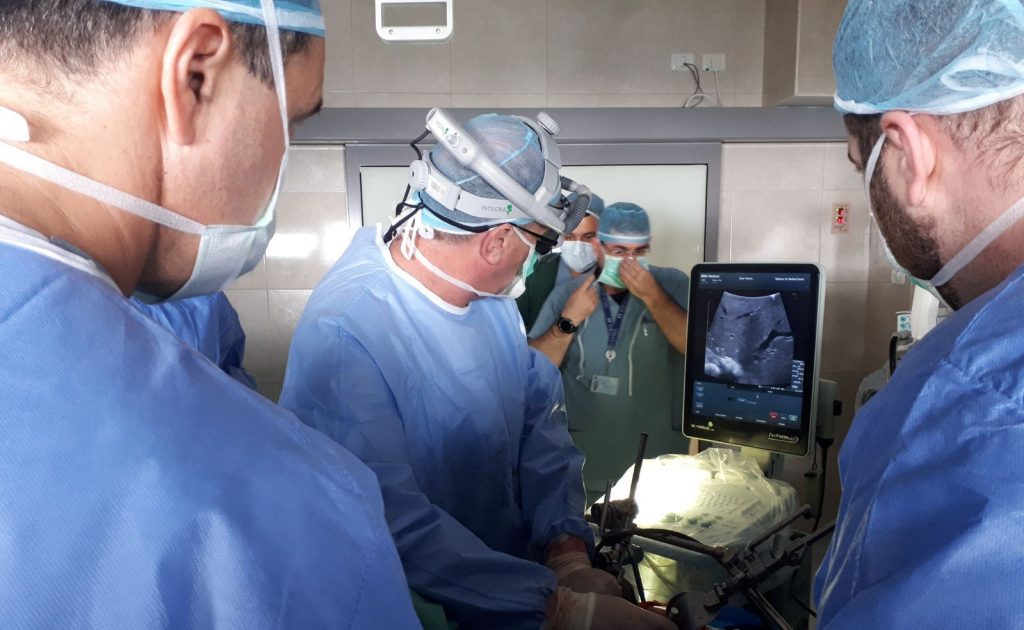
UPDATE: We’ve since written a number of articles about the company’s work, including a follow-up in 2018 that reported that IceCure was also applying the treatment to lung, kidney, liver, and bone tumors.
Ice Cure has since reported great success in clinical trials, began offering treatments at Elisha Hospital, a private hospital in the northern Israeli city of Haifa, and signed a distribution agreement with Japanese medical multinational Terumo Corporation to commercialize its cryoablation system to treat malignant breast tumors in Japan and Singapore.
After Thousands Of Years Of Stitching, Israelis Invent New Wound-Closure Method
In 2014, NoCamels reported on a unique method developed by an Israeli surgeon that could replace surgical suturing, a technique that hasn’t changed for hundreds of years.
TopClosure was invented by Dr. Moris Topaz, chief of plastic surgery at Hillel Yaffe Medical Center in Hadera to seal complex skin wounds and cuts faster and facilitate safe healing.
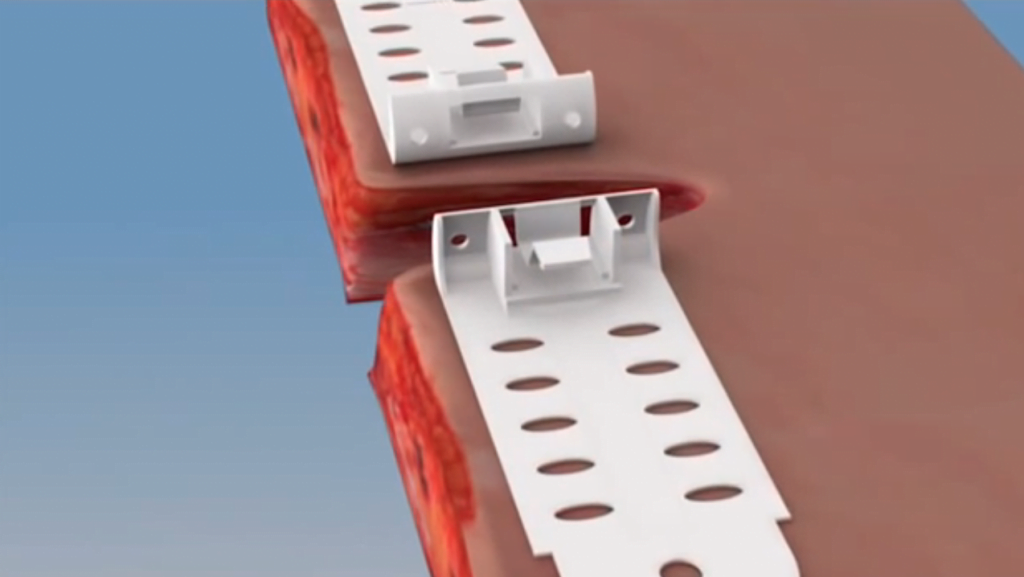
The product contains two clasps adhered to the skin on either side of a wound connected by a cable that tightens, sealing the open wound. Used by medical professionals in hospitals, it works by first stretching out the skin around the wound to avoid the need for skin grafts, and second, by ensuring that the wound scars properly. This procedure mitigates disadvantages of traditional stitching methods including high tension on the skin, difficulty of application and skin aesthetics following recovery
UPDATE: In 2018, we did a follow-up on TopClosure and reported that new applications have been developed for more complex wounds, going beyond skin injuries.
“Our main achievements are in the application of TopClosure in providing ground-breaking solutions for soft tissue injuries, open abdomen in trauma, deep sternal wound infection in cardiothoracic surgery, and tissue pressure injury,” Dr. Topaz told NoCamels at the time.
We also learned that Dr. Topaz developed Vcare α (pronounced Vcare alpha), a suction device that removes infectious materials and excess bodily fluids including blood and pus from wound cavities. He said that the device was the first of its kind since it also applies oxygen-enriched and irrigation negative pressure-assisted wound therapy (ROI-NPT) – a process that prevents infections through negative pressure and increased oxygen levels in the treatment area. The technique was pioneered by Topaz, who told NoCamels that increased oxygen exposure reduces infection risk and expedites wound closure.
SCiO: This Unbelievable Device Will Change The Way We Interact With The World
In April 2014, NoCamels reported on an innovative device called SCiO, a pocket-sized micro-spectrometer that could be pointed at any object – from fruit to body to medicine – and read its molecular composition and nutritional value.
The device was a hit on Kickstarter, surpassing its initial funding goal of $200,000 in less than 24 hours to raise a staggering $2.8 million from 13,000 supporters. The company behind SCiO, Consumer Physics, raised a total of $23.9 million in funding since its founding in 2011 from leading VCs and tech leaders, including OurCrowd, Khosla Ventures, Apex Capital Partners, and the USB flash-drive inventor Dov Moran.
SCiO promised to map the chemical makeup of the world around us to create the world’s first database of matter and put the means of discovering it in the palm (and pocket) of the user’s hand.
UPDATE: This year, we followed up with Consumer Physics and reported that amid some challenges, obstacles, and disputes, the company has since shifted its focus from the consumer to the business world.
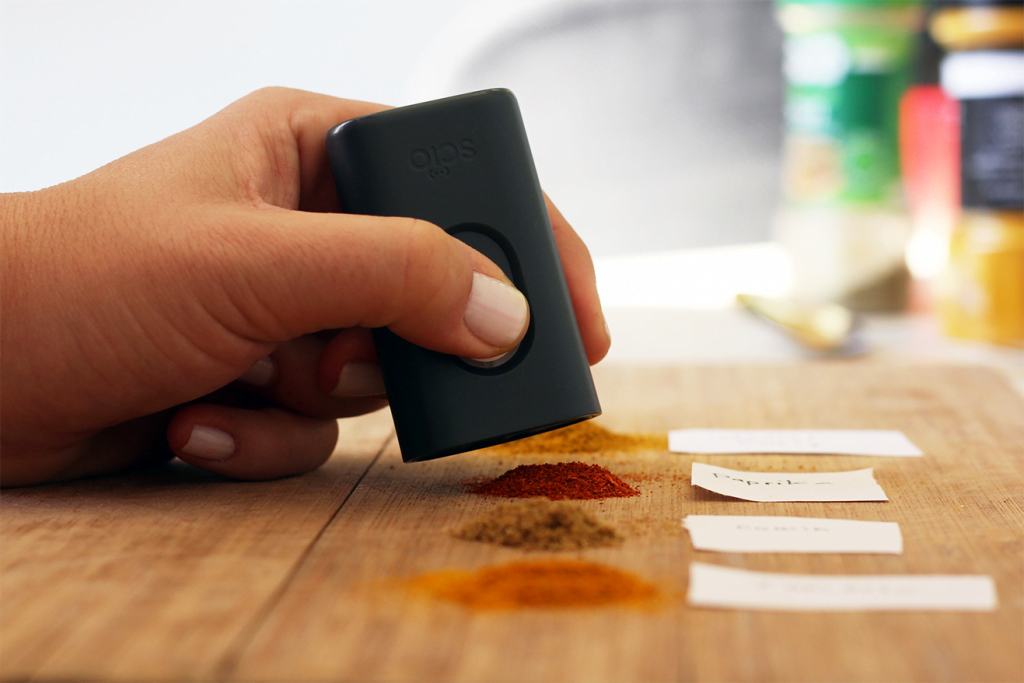
“Our target [clients] are now large Fortune 500 companies that are manufacturing physical goods. What these companies are looking for is a robust dataset and analyses that are based on the material that they manufacture and produce,” founder Dror Sharon told NoCamels in March.
Sign up for our free weekly newsletter
SubscribeSo instead of having consumers test fruit, vegetables, and dairy in the supermarket, Consumer Physics says it goes directly to the producer.
Find Out Which Hollywood Celebs Are Betting Their Money On The Startup Nation
Also in 2014, NoCamels readers were gripped by an article that detailed which celebrities were looking to invest in Israeli startups and companies.
The piece looked at Israeli celebrities like Bar Refaeli, but also international artists and personalities such as Justin Beiber, Ellen Degeneres, and Jay-Z.
UPDATE: In the works.
New Israeli Cancer Vaccine Triggers Response In 90% Of Cancer Types
In 2015, NoCamels reported on Vaxil BioTherapeutics, an Israeli biomedical company that developed ImMucin, a prophylactic cancer vaccine that the company said can trigger a response in about 90 percent of all types of cancer.
“Vaxil is developing a drug to keep the cancer from coming back,” Julian Levy, Vaxil’s then-CFO, told NoCamels. “We are trying to harness the natural power of the immune system to fight against cancer by seeking out cancer cells and destroying them.” Levy explained that ImMucin was not a replacement for traditional cancer treatments such as chemotherapy or radiation. Rather, the company is targeting a different stage in the patient’s battle against cancer, specifically the early stages of the detection, as well as during remission.
The company indicated at the time that it hoped ImMucin would be on the market by the end of this decade.
UPDATE: NoCamels had been trying since late 2017 to reach out the Vaxil for a follow-up on the company’s work and an update on the vaccine’s development.
This month, we received a response from the company which said that it was in the process of raising funds but declined to answer further questions at this time.
The company referred us to existing materials available online which indicate that ImMucin completed a Phase I/II clinical trial in multiple myeloma and received Orphan Drug status from the FDA and EMA (European Medicines Agency). Vaxil also entered into an exclusive worldwide license agreement this year for the development and commercialization of targeted cancer therapy with BGN Technologies, the technology transfer company of Ben-Gurion University of the Negev.
NoCamels is looking forward to providing our readers with a new, updated article on Vaxil’s progress in the coming months.
This Israeli Tech Helped In Search For Missing Boys Soccer Team in Thailand
In the summer of 2018, the world was gripped by the story of a boys’ soccer team that had gone missing in Thailand in a partially flooded cave in the northern region of Chiang Rai.
Israeli rescuers and cutting-edge Israeli tech soon joined the search and rescue mission, including Israeli company Maxtech Networks, a supplier of emergency communication equipment. The company sent emergency radios and other innovative technologies to aid the rescuers, including its patented Max-Mesh mobile professional radio, a device that enables mission-critical communication of professional mobile radios through virtual infrastructure, even when no physical infrastructure is available.

The technology was useful as the complicated nature of the area – about 10 kilometers large – was not conducive to communication.
Maxtech CEO and founder Uzi Hanuni told NoCamels at the time that he was so moved to help in the search for the missing group that the company provided the devices to the search parties as soon as it could.
The team was found alive and rescued safely.
Israeli-Developed Bandage That Stops Bleeding Within Seconds Now Sold Globally
In early 2018, we published this widely read article on WoundClot, a bandage that stops bleeding in under a minute. We first reported on WoundClot, made by Israeli company Core Scientific Creations (CSC), in 2016.
The bandage is made out of cellulose (plant cells), can absorb over 2500 percent of its own weight and can be applied in situations in which compression can be harmful, such as with stab wounds, head and neck injuries, and internal bleeding. It is also bio-absorbable, remaining biologically active for 24-36 hours and breaking down naturally in the body within a week.
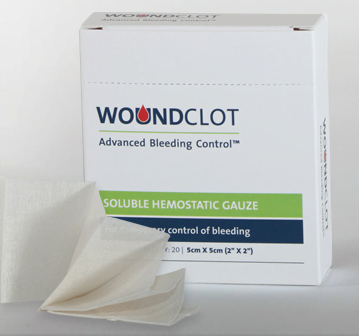
In our 2018 report, we discovered that CSC now sells WoundClot and a number of other medical supplies to distributors in 32 countries including Italy, India, Vietnam, the UK, Poland, Romania, and France.
CSC founder and CEO Yuval Yaskil told NoCamels at the time that the products are used mainly in public institutions like hospitals, dialysis clinics, law enforcement systems, and militaries. A small portion goes to private medical professionals, a majority of them surgeons but also nurses, paramedics, and dentists. The products meet FDA and CE standards.
UPDATE: Yaskil told us CSC’s research would focus on adapting WoundClot to at least three more different applications and developing added components with WoundClot as a base technology. We’ll be following up on developments.
3 Recent Israeli-Led Breakthrough Discoveries In Autism Research
In April 2018, we published a piece on the latest Israeli-led research on ASD, autism spectrum disorder, a range of conditions characterized by challenges with social skills, behaviors, and communication.
It included a screening product for newborns, the effect of medical cannabis, and a medical study that showed that women who take folic acid supplements and multivitamins before and during pregnancy have a reduced risk of having a child with autism.
UPDATE: We’ll be publishing a new piece on the latest research in the coming months.
5 Israelis Among Forbes Lists Of ‘Top 50 Women In Tech’
In late 2018, NoCamels reported that five Israeli women were named to Forbes’ lists of “Top 50 Women In Tech” that year, including three to the inaugural global list and two to the European round-up.
The article was widely circulated and some of the women on the list were featured in additional articles on NoCamels.
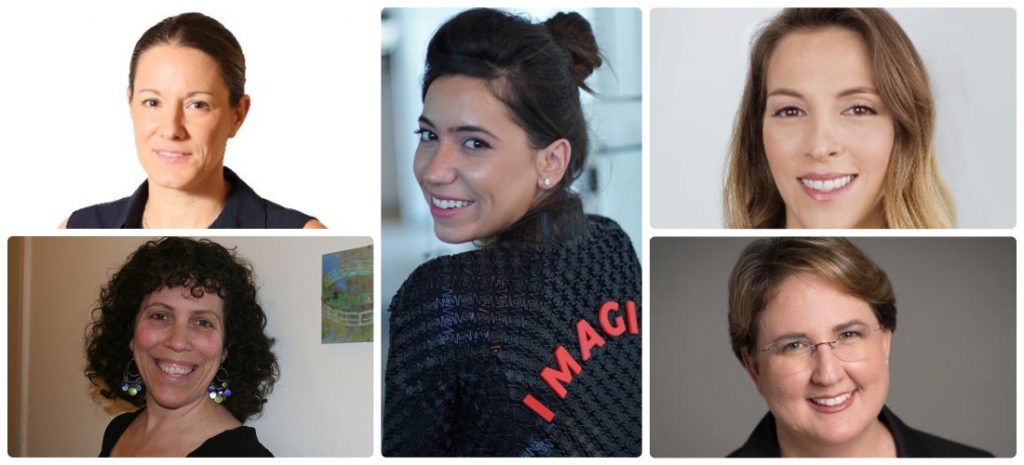
Our round-up of NoCamels’ most popular articles in 2019 can be found here.
Related posts

Editors’ & Readers’ Choice: 10 Favorite NoCamels Articles

Forward Facing: What Does The Future Hold For Israeli High-Tech?

Impact Innovation: Israeli Startups That Could Shape Our Future




Facebook comments